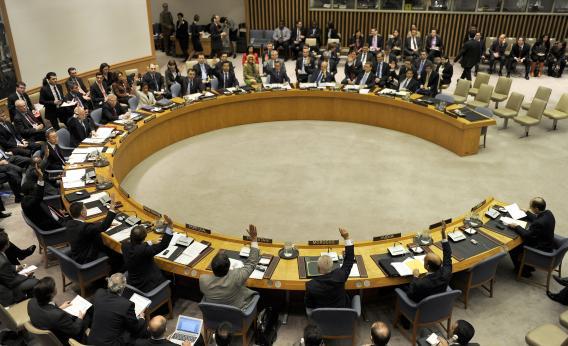My GP column this week …
The United States, quick to claim the mantle of “global leadership,” has recently become a rather defensive power. Aware of a relative decline in its global influence, but unwilling to face the implications, the US has chosen to fight a series of petty rear-guard battles to protect its outdated prerogatives (for instance, the “right” to appoint an American as the head of the World Bank), rather than engage in the difficult conversations with allies and emerging powers necessary to prepare for a world not dominated by America.
There’s little political love for the leader who begins this process — our system rewards only short-term, tactical thinking, not realism or political bravery.
Yet the day will come when pursuing foreign policy for domestic consumption will fail, possibly catastrophically. So at the very least, an intelligent conversation should be underway among those of us who don’t have to run for office about what these changes, reforms and sacrifices look like.
A great place to start is the centerpiece of post-war American idealism, the United Nations. Of all the world’s multinational bodies, the UN Security Council remains the most obviously flawed, reflecting the US-centric world of 1945 (or, at best, 1979, when China assumed Taiwan’s seat).
Efforts to bring the Security Council into sync with the 21st Century fail largely because of the veto power held by the “permanent five” nations, or “P-5” in Turtle Bay speak. Thus it remains in the interest of the United States, Britain, France, Russia and China to agree not to agree on any set of new members that should join them at the top table.
The current reform debate is going nowhere. Search for “UN Security Council reform” on Google and you are ushered into a diplomatic parlor game whereby major regional powers demand “permanent member status” and their major regional rivals call on their veto-wielding friend on the council to prevent it from ever happening. Thus is India blocked by Pakistan (and China), South Africa and Brazil by the jealousies of Nigeria and Mexico (and the US).
Similarly, the obvious case for adding Japan and Indonesia or even Germany falls afoul of the Chinese and Russians, who don’t want more American allies there; the US and British desire to add Egypt (tempered now by revolutionary uncertainty) was opposed by the French, who prefer Algeria. And on and on it goes.
The solution is obvious: eliminate the veto. The idea that any power should preempt a majority of the planet’s most powerful states simply by issuing a veto is the most egregious of all the anachronisms that have survived at the UN. What better cause for an American president — the proselytizer-in-chief for global democracy — than making the Security Council more democratic?
China and Russia recently vetoed sanctions against the vicious regime of Syria’s Bashar al-Assad. The United States routinely finds itself backed into a corner on issues involving Israel, which, rather than being resolved through negotiations, wind up unresolved and subject to Washington’s imperious “no.”
This veto power — far more than the theater of the absurd that is the General Assembly — does more to undermine the institution than any other single factor.
Once vetoes are gone, the addition of a set of emerging powers and a consolidation of the French and British seats into a single EU vote would be possible. The addition of Japan, Brazil, India, Indonesia, Nigeria, Egypt and South Africa as permanent members would force real negotiations on the world’s most important issues, transforming the UN from a sideshow to the main show.
The prospect of such status for Iran someday, too, might be a powerful added incentive for rational behavior.
In such a forum, the United States’ ability to form coalitions and mediate disputes would be amplified, and while it would lose votes, too, this reform of the Security Council would stand as the ultimate democratizing moment of America’s years at the top of the heap.
Such lessons often take generations to fully sink in. But still, with clear decisions by leaders in North America and Europe, the worst can be avoided.
The United States, the most resilient and unique society ever founded, may yet find the “middle way” that strikes the right balance between promoting growth and reducing unsustainable promises at home, while carefully turning over some of the world’s burdensome security arrangements to its other 6.7 billion inhabitants.
If so, it remains the most powerful force in the world — not dominant, perhaps, but one entirely in control of its destiny.
It also seals in amber the idea that America, during its period as a global hegemon, truly was different from those who came before — selfish at times, yes, but also willing to be far-sighted and eager to leave the world a better place than the shambles it assumed control of in 1945. If America continues to be a thin-skinned power unwilling to make small sacrifices in the name of smoothing the way to a sustainable 21st Century balance, a post-American world will emerge in spite of rather than because of US actions — with potentially disastrous results.
Michael Moran is foreign affairs columnist for GlobalPost and director and editor-in-chief at the global investment bank Renaissance Capital. He is author of “The Reckoning: Debt, Democracy and the Future of American Power” (Palgrave Macmillian 2012).
At the U.N., Veto the Veto

The United Nations Security Council: Time to close the circle?
Photograph by Timothy A. Clary/AFP/Getty Images
Advertisement